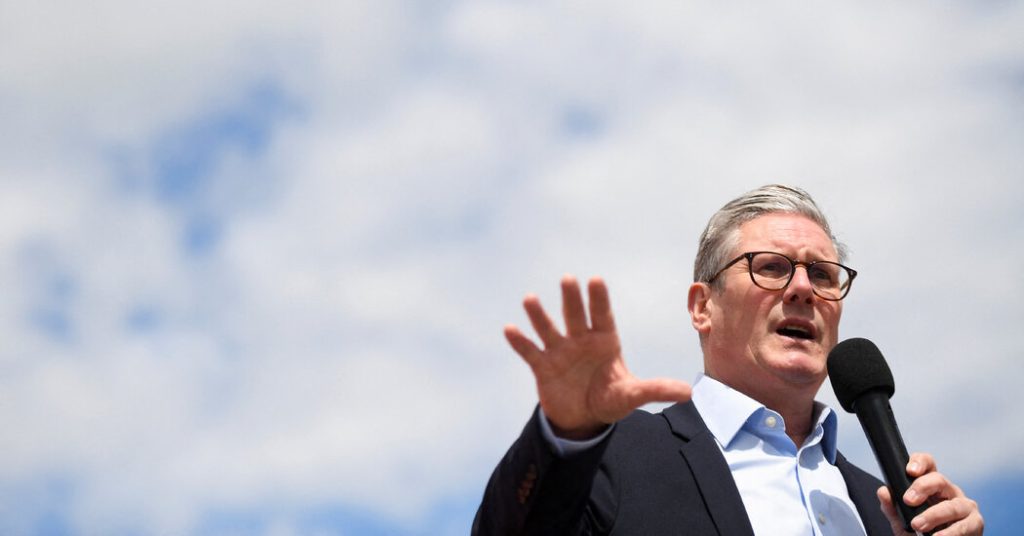Keir Starmer, the leader of Britain’s Labour Party, is on the cusp of potentially becoming the Prime Minister, following in the footsteps of his predecessors who have employed the “Ming vase strategy” to protect their leads in the polls. Starmer has diligently repositioned the Labour Party as a credible center-left alternative to the divided and erratic Conservative Party by purging the party of left-wing elements, addressing issues such as anti-Semitism, and realigning economic and national security policies towards the center. This strategic shift has expanded the party’s voter base and increased its electability.
Starmer’s transformation of the Labour Party draws comparisons to Tony Blair’s New Labour rebranding in the 1990s, which focused on making the party business-friendly and emphasizing economic opportunity over socialist-style wealth redistribution. However, there are notable differences between the two eras, with Starmer advocating for a more activist role for the government in providing economic security for working-class people. His campaign messaging emphasizes the importance of economic, border, and national security, reflecting the turbulent economic and geopolitical landscape post-2009 financial crisis and Russia’s invasion of Ukraine.
Regarding economic policy, Starmer is expected to govern under strict financial constraints, which may necessitate tax increases on oil and gas companies, private equity firms, high-income foreigners, and the removal of tax breaks for private schools. The party has promised not to raise taxes on working people and aims to be fiscally prudent under the leadership of Rachel Reeves, the potential chancellor of the Exchequer. Labour has also scaled back its climate policy to avoid accusations of planning a tax-and-spend government, despite Prime Minister Rishi Sunak’s claims to the contrary.
Starmer’s inner circle reflects his moderate instincts, with figures like Reeves signaling to centrist voters that Labour is a party they can feel comfortable with. He has avoided reopening the divisive Brexit debate and ruled out a return to the EU, though he is open to closer trade ties with the bloc. In foreign policy, he has sought to distance Labour from accusations of lacking patriotism by committing to increase military spending and support Ukraine while aligning with the Conservative government’s stance on Israel. This focus on combating anti-Semitism has led to alienation among some Muslim supporters and remains a potential stumbling block for the party.
While Starmer’s Labour Party appears more electable in the upcoming election, much of its success can be attributed to the perceived collapse of its opponents, including the Conservative Party and the Scottish National Party, due to various scandals and setbacks. Starmer’s ability to rehabilitate the Labour Party at a time when its rivals are struggling has positioned him as a potential Prime Minister, despite the challenges and uncertainties of the political landscape.









